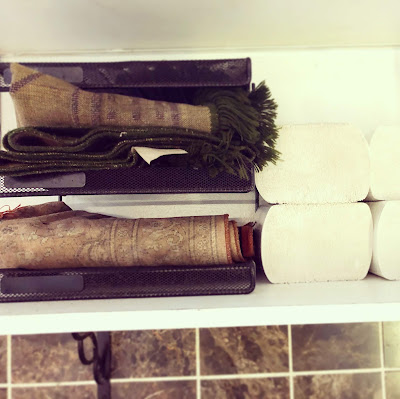Every time I'm in SoHo, whether I'm hungry or not, I duck into the shadows of Crosby Street and head toward the glowing sign: Lahore: Feel the Taste of East.
Twenty-four hours a day, this Pakistani cabby stand, wedged between an air shaft and a dermatology practice, serves up the perfect New York City snack: a vegetable samosa and a cup of chai tea.
Besides the taste—a melding of sweet and savory, soft and crispy—the perfection comes from the deli itself and the locals who frequent it: taxi drivers and professionals, fashion editors and students, construction workers and cops.
The 175-square-foot space is a masterpiece of efficiency and a microcosm of cross-culturalism and New York City's cabby subculture. The cooks duck in and out of the kitchen via a three-foot swinging door beneath the counter. Ketchup and salt abut canisters of mixed pickles and chaat masala.
Clamshells of special cake rusk and Peanut Pistas flank the orange Coleman water cooler hulking in a corner beneath tubs of mayonnaise, boxes of rubber gloves, toilet paper, a TV screen, and a tangle of ethernet cables
The battered door sports a bulletin board peppered with handwritten pleas and offers: for night-drive shifts in Canarsie, for single bedrooms for rent in Elmhurst, for DMV and TLC summonses attorneys. Folded kilims are tucked into a metal file sorter beside bundles of paper towels.
This stretch of East Houston was once known as Gasoline Alley for its many filling stations; until it closed, in 2016, cab drivers would refuel or change shifts at the BP across the street, then pop into Lahore for a chicken cutlet sandwich, tea, a packet of Pepto-Bismol, or to use the bathroom, which has a glowing "in use" light above the door. The BP has been replaced by a gleaming office building, but the cab drivers still find their way here.
The man behind the counter will greet you with "Hello, Brother" or "Hello, Sister," looking up from a cricket game fizzling from a TV tucked beneath the counter. You'll reply: "A samosa and a chai with two sugars, please." The samosas are kept in a glass case, alongside trays of rice and other halal meat and vegetable dishes, all delicious. But you're here for the samosa.
He will slip the deep-fried pastry into a paper bag and pop it in the microwave while he ladles out your chai. The samosa, pleated and folded into a puffy sailboat shape, emerges pillowy and soggy, but the edges retain their crispness. The grease saturates the napkins and the paper bag, but that's part of the charm. Take a seat on one of the four wobbly counter stools and eavesdrop—or perch beside a construction cone on the stoop outside. The cool bumps of the glass bulbs in the steps add another dimension to the experience.
Bite off one of the two crisp corners and a plume of microwaved steam will rise from the filling. Your teeth sink through the crust into the mush of potato and peas spiked with fennel and cumin. Flip back the plastic lid on your cup of chai; the little flap will hit you in the nose as a prelude to the hot swish of milk and rush of sugar.
The 175-square-foot space is a masterpiece of efficiency and a microcosm of cross-culturalism and New York City's cabby subculture. The cooks duck in and out of the kitchen via a three-foot swinging door beneath the counter. Ketchup and salt abut canisters of mixed pickles and chaat masala.
Clamshells of special cake rusk and Peanut Pistas flank the orange Coleman water cooler hulking in a corner beneath tubs of mayonnaise, boxes of rubber gloves, toilet paper, a TV screen, and a tangle of ethernet cables
The battered door sports a bulletin board peppered with handwritten pleas and offers: for night-drive shifts in Canarsie, for single bedrooms for rent in Elmhurst, for DMV and TLC summonses attorneys. Folded kilims are tucked into a metal file sorter beside bundles of paper towels.
This stretch of East Houston was once known as Gasoline Alley for its many filling stations; until it closed, in 2016, cab drivers would refuel or change shifts at the BP across the street, then pop into Lahore for a chicken cutlet sandwich, tea, a packet of Pepto-Bismol, or to use the bathroom, which has a glowing "in use" light above the door. The BP has been replaced by a gleaming office building, but the cab drivers still find their way here.
Bite off one of the two crisp corners and a plume of microwaved steam will rise from the filling. Your teeth sink through the crust into the mush of potato and peas spiked with fennel and cumin. Flip back the plastic lid on your cup of chai; the little flap will hit you in the nose as a prelude to the hot swish of milk and rush of sugar.
One afternoon as I was sipping my chai, a customer strode in. "Hello, Brother," he was greeted with a nod. "You know," the man said, pushing a pair of Beats headphones onto his temples, "you guys never tell me about all the good stuff you got back there. What’s that—fish sandwiches or what? On a bun or over rice or what? You got white rice? I don’t want white rice! You don’t have gold rice? All right, gimme the rice, put some fish over it. Little okra on the side." Two minutes later: "Brother, that'll be ten dollars." The customer slapped the bills onto the counter and bestowed smiles all around. "It’s great food," he said, pushing his headphones back over his ears. "Like a secret spot." Then he bounced down the stairs and out into the afternoon.















